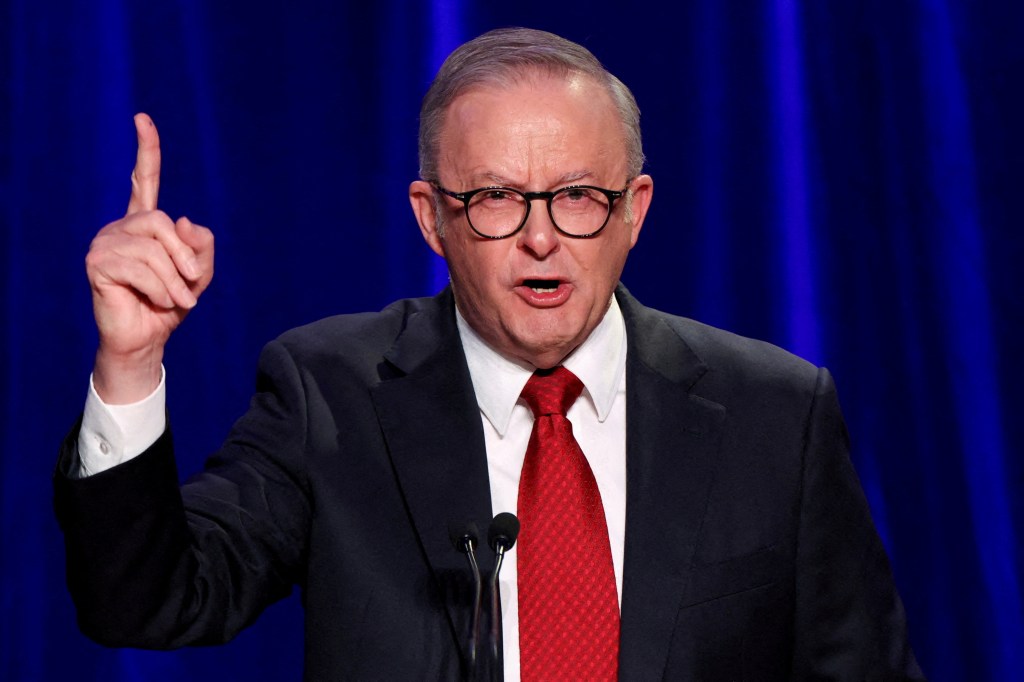It didn’t take long for a gleeful new anti-Trump narrative to grip the global media after elections in Canada and Australia delivered upset defeats to conservative parties.
“Trump Effect” headlines blared all over the world, blaming the American president for failures far from home.
Donald Trump as the kiss of death for conservative parties was the claim in most election post-mortem analyses.
It is a convenient excuse for the lackluster right-of-center Liberal-National Coalition in Australia rather than facing the reason for its historic wipeout at the hands of voters last week.
And it’s a comforting theory that gives Democrats hope that Trumpism will collapse in on itself at home, relieving them of any need to reform their policies or find electable leaders who aren’t weird or senile or corrupt.
But there is little about the Toxic Trump narrative that withstands scrutiny — and it overlooks the global strength of similarly populist anti-establishment movements running on issues of national sovereignty, immigration, and cultural identity.
Take the stunning success last week of British populist politician Nigel Farage, the architect of Brexit and the foreign political leader most closely associated with Trump.
His Reform UK party scored a thumping victory in regional and other elections across the country, especially in working-class areas.
In Europe, right-wing populist parties that share Trump’s worldview have been surging. Giorgia Meloni in Italy is now the most stable European leader. In Germany, the Alternative für Deutschland is now the second-largest party, alarming the Bundestag political establishment and leading to European threats of canceling elections.

Meanwhile, in Australia, the charmless opposition leader Peter Dutton, nicknamed “Mr. Potato Head,” ran a million miles from the Trumpian label his left-wing opponents tried to slap on him.
The likable, if unprepossessing, prime minister, Anthony Albanese, leader of the leftist Labor Party, ran on a big spending platform promising all sorts of extravagant social welfare handouts, matched speedily by Dutton’s putatively conservative Liberal party, whose campaign seems to have been run by a me-too bot.
Labor plans to pay for its largesse with the sort of socialist disasters Americans rejected in November, such as a tax on the unrealized gains of Australian workers’ superannuation accounts, their captive government-mandated retirement savings.
There was no discernible opposition from the opposition to the policy, so Albanese was returned with a historic majority and a mandate to plunder middle-class savings.
Dutton was rewarded for his dullardness by losing the parliamentary seat he had held for 24 years. Unlike his Canadian counterpart, Conservative Party leader Pierre Poilievre, who also lost his seat, Dutton’s party was not interested in providing him with another one, or keeping him on as leader.
Trump he was not.
The closest Dutton came to Trumpism was to promise a milquetoast sort of Australian DOGE and a policy to abolish the work-from-home habit Australians have come to enjoy post-COVID, especially on Mondays and Fridays.
In the laid-back land of the long weekend, a government ban on WFH was never going to fly. The outcry forced Dutton into a cowardly backflip, thus sealing his fate.
Get Miranda’s latest take
Sign up for Devine Online, the newsletter from Miranda Devine
Thanks for signing up!
While it’s true that Australians are alarmed by Trump’s tariff instability, that is not what caused Dutton’s collapse.
The rise of alternative conservative parties in Australia, including Trumpet of Patriots (a new Trump tribute party founded by an opportunistic mining billionaire), is a sign of dissatisfaction with a uniparty ruling elite that has fostered a growing class of welfare dependents with an economy propped up by massive immigration and selling off resources to China.
If all the parties on the right and center right coalesced, they would have thrashed Labor.
But even if Dutton had donned a blond wig and a MAGA hat, nothing would have altered his fate, since his campaign lacked the discipline, policy sophistication, savagery, or pizazz of Trump’s.
If Dutton did try to imitate the US president, it didn’t register with Trump, who didn’t even know who he was, while gushing about Albanese.
“We have had a very good relationship,” Trump told the Sydney Morning Herald when asked about the re-elected Australian prime minister. “He’s a friend of mine … I have no idea who the other person is that ran against him.”
In Canada, the Toxic Trump narrative was more plausible since apple-munching, media-punching Poilievre had been riding high in the polls against the loathsome Justin Trudeau before Trump launched his perplexing attacks on the maple leaf nation, and teased Canadians about becoming the 51st state.
However, as political consultant and podcaster Ryan Girdursky points out, Poilievre’s Conservative Party actually did exceedingly well, pulling out its highest vote share since 1988.
Canadians’ thirst for change had been sated when Trudeau handed over the left-wing Liberal Party’s leadership to the urbane technocrat Mark Carney.
Girdursky, who describes Canada as a “whole nation of Rachel Maddow viewers,” also attributes Carney’s victory to the collapse in support for smaller left-wing parties, thus consolidating votes for the Liberals, rather than to Poilievre’s affinity for Trump.
The motto of the story is that imported Trump lite never works, and Democrats should not trust comforting narratives.

